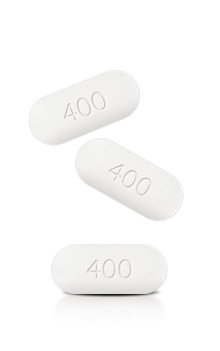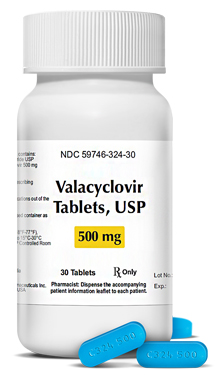Sexual Health
VALACYCLOVIR
Valacyclovir is a suppressive therapy in the treatment of herpes zoster infections (shingles) or genital herpes. It can also ...
Online STD Treatment Options
Sexually transmitted diseases, or STDs, are contagious infections that spread through sexual contact. Herpes is a common STD that can cause genital and oral infections. STDs typically transmit via oral, vaginal, and anal sex. Infections become possible through kissing and skin-to-skin contact. The symptoms of an STD can include sores, pain, and itching.
In some cases, people do not show any apparent signs of an STD infection. It’s important to realize that people without symptoms can still transmit the virus.
There is no cure for STDs, such as genital herpes. However, infected people may benefit from STD treatments.
STDs can stay dormant inside the body for weeks, months, or even years. In most cases, the STD will eventually reactivate. When the virus is active, it can cause painful symptoms during the outbreak. STD treatments can address the symptoms of STDs.
Medications can speed recovery, lower the risk of future outbreaks, and reduce the likelihood of transmitting an STD infection.
- Now you can purchase prescription STD treatments online.
- A US-licensed physician will approve your order.
- All orders ship from a US-licensed pharmacy.
- No doctor’s appointments.
- No additional fees or co-pays.
Top STD Treatments Prescribed Online
• Valacyclovir
Valacyclovir is a popular antiviral drug. Valacyclovir treats or manages diseases caused by specific types of viruses. Also used to treat cold sores that usually occur around the mouth and shingles mainly caused by herpes zoster.
• Valtrex
Valtrex is a popular FDA-approved STD treatment. Valtrex treats genital herpes and shingles infections. Valtrex works by preventing the virus from replicating.
• Acyclovir
Acyclovir is an FDA-approved generic version of the STD treatment Zovirax. Acyclovir treats genital herpes and prevents future outbreaks. Clinical studies have shown that acyclovir decreases the severity of symptoms such as pain and itching.
STD Causes
Herpes is a common STD usually caused by one of the following viruses:
- Herpes Simplex-1. This virus typically causes oral infections. However, it can ube spread to the genitals via oral sex.
- Herpes Simplex-2. This virus usually causes genital infections. It typically spreads via direct sexual contact. Herpes simplex-2 is very contagious. People without visible symptoms can still transmit the virus.
You can contract an STD without exchanging body fluids with your sexual partner. Skin-to-skin contact can transmit the virus from one person to another. You are not likely to get an STD from a toilet seat, towel, or other personal items.
STD Medications
Certain STD treatments can help people prevent future outbreaks. These medications can also speed recovery and reduce symptom severity. The most popular STD medications are Denavir, Famvir, Valtrex, and Acyclovir.
These STD treatments are typically taken orally for up to 10 days. If the infection does not subside within ten days, you may need additional STD treatment. Severe STD outbreaks can be treated intravenously with acyclovir.
STD Symptoms
Many people with STDs do not notice any signs or symptoms of infection. In other cases, the symptoms of an STD infection can be mild to severe.
Common STD symptoms may include:
- Burning, itching, and soreness in the genitals
- Open sores and wet ulcers in the genitals
- Pain during urination
- Inflamed lymph nodes in the groin
- Muscle pain and headaches
- Fever and flu-like symptoms
The symptoms of an STD can develop days, weeks, months, or even years after infection. In many cases, the STD symptoms will stay dormant in the body for a very long time. Some people may never notice any symptoms. People who have an initial outbreak are more likely to experience repeated outbreaks in the future.
Outbreaks can be triggered by environmental factors and emotional distress. If you experience an outbreak, contact a doctor for STD treatment.




